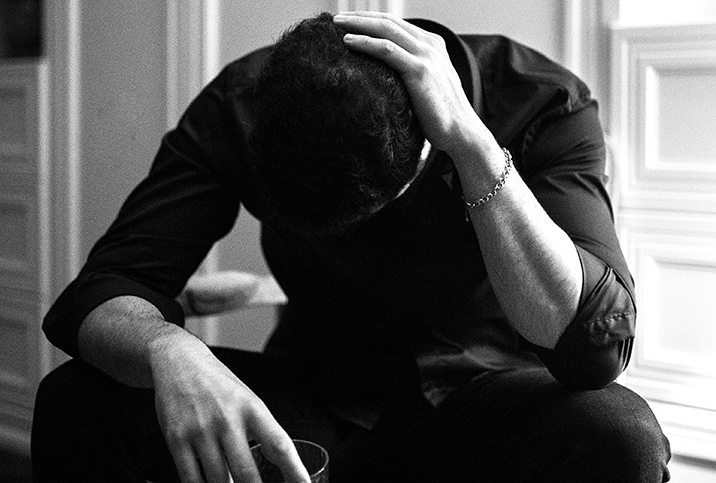PTSD and Erectile Dysfunction: What to Know

Post-traumatic stress disorder, or PTSD, is a mental health condition that affects 3.5 percent of U.S. adults each year. About 9 percent of people will be diagnosed with it at least once in their lifetime. Anxiety, depression and night terrors are a few of the symptoms of PTSD, but one aspect is often overlooked: erectile dysfunction (ED) and other sexual health issues. However, sufferers of PTSD can overcome these sexual problems by identifying their issues and tackling them head-on. Here's what you need to know about PTSD and erectile dysfunction.
Who's at risk?
People of all ages, races and genders are at risk for PTSD. However, veterans are at much higher risk, and studies indicate up to 80 percent of former and current active military personnel will be afflicted by PTSD at some point in their lives.
PTSD is caused by exposure to a variety of events or experiences, including, but not limited to, combat, rape, assault and natural disasters; other factors, such as substance abuse, family history and genetics, may impact the stress response to those traumas. The severity of PTSD is different for every individual but has a higher incidence or stronger symptoms in veterans or people who experienced a traumatic event at a young age.
Some of the most common symptoms of PTSD include insomnia, hyperarousal, violent outbursts, anxiety, hostility and depression. All of these symptoms can present quickly, severely and with little or no warning or trigger. While some people with PTSD display mild symptoms, others may have one or more symptoms that can cripple day-to-day life and interactions.
Why does PTSD cause erectile dysfunction?
Although research on PTSD tends to focus on mental health issues, such as depression, suicidal tendencies or violent outbursts, more studies are diving into the sexual problems associated with PTSD.
Veterans, PTSD and ED
According to one study, up to 85 percent of veterans who have PTSD also have ED. Our knowledge of the relationship between ED and PTSD for the general population is still in its infancy, but in this same study, only 22 percent of veterans had ED if they had no known symptoms of PTSD.
The link between the two is complex—people with PTSD tend to drink or use illicit substances more often to help them cope with the disorder. When drugs and alcohol are added to the equation, the incidence of ED, as well as a lack of sexual desire and sexual aversion disorder, can increase.
The psychology of sex
In a broader sense, PTSD causes ED because it interferes with the psychology of sexuality. Sexuality is as much mental as it is physical, and when a person's ability to function psychologically is impaired, sexual desire can fall drastically and ED can occur.
This theory has been backed by recent studies from the Veterans Affairs Medical Center. Researchers believe that PTSD essentially "crosses wires" in the brain. Instead of arousal triggering a sexual function such as an erection, it's more likely that the brain now associates arousal with fear and sends the PTSD patient feelings of anger or aggression.
Other factors
Several other factors can exacerbate ED and poor sexual performance in people with PTSD. Mental health medications can often cause a lack of desire or other sexual side effects. Men are often inclined to treat ED as a physical ailment rather than a mental one, so they may ignore the signs and symptoms of PTSD, negatively affecting life in the bedroom. Treating ED as a physical problem through medication such as Cialis or Viagra is relatively inefficient, because this treatment ignores the core psychological issues causing erectile dysfunction.
Treatment options
Fortunately, men with both PTSD and ED have several treatment options. This list continues to grow, but some of the most popular choices are:
- Working with a sex therapist or doctor who specializes in sex rather than with general physicians or psychiatrists.
- Taking medication to alleviate the symptoms of PTSD.
- Learning coping mechanisms.
- Talking to a partner about the issue.
Controlling or overcoming the situation isn't often a quick fix. Taking the time to learn what is at the root of mental health issues is just as important as overcoming the manifestations of these two ailments.
Despite the uphill battle of overcoming ED and PTSD, coping mechanisms and medication are proven aids. However, the psychological aspect of PTSD as it relates to ED is far different from medically linked ED. Thus, you may need to find a more encompassing approach that varies from traditional ED treatment. Consult your physician about the best way to handle it. By formulating a plan, you can treat sexual issues and attack the root of PTSD.


















